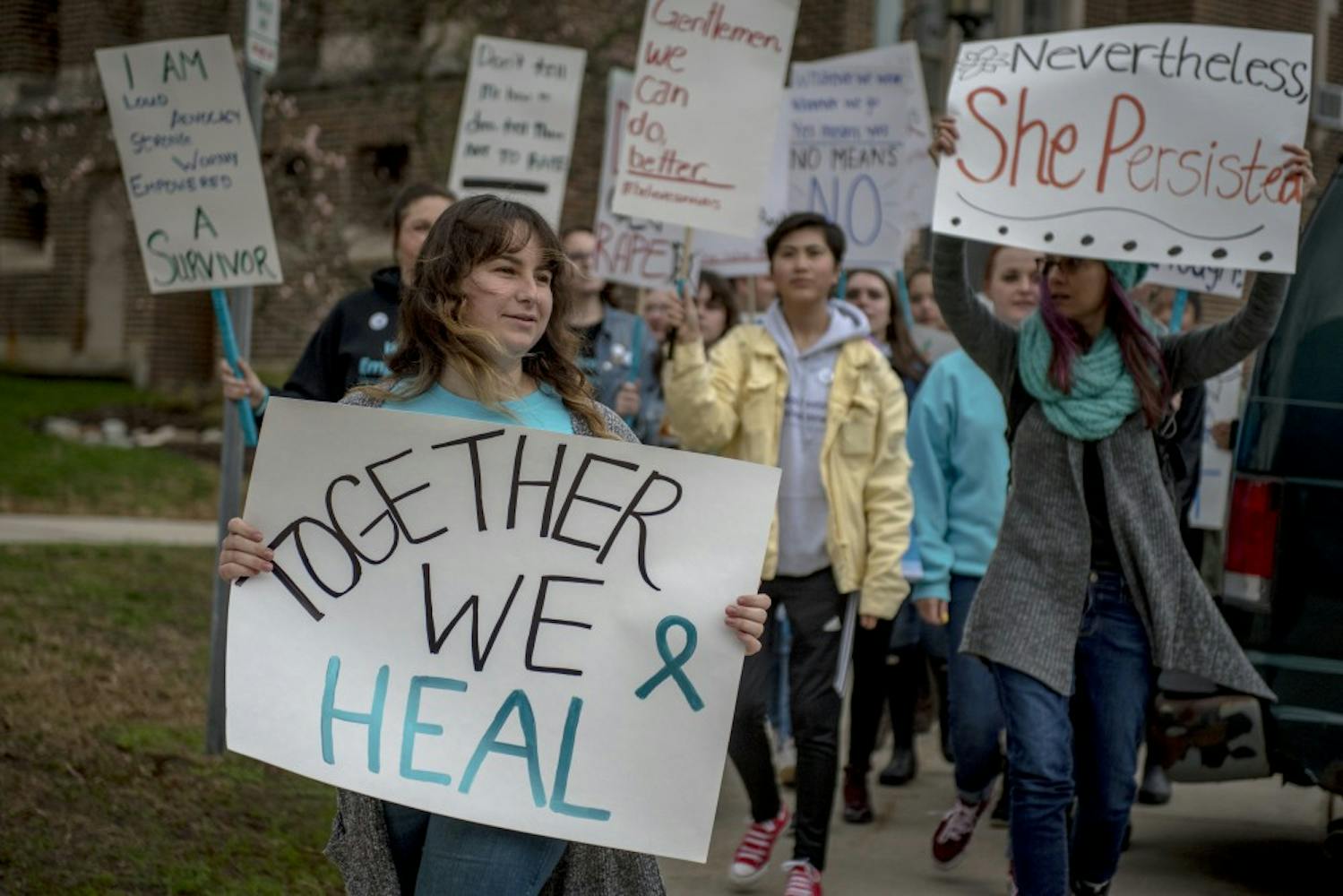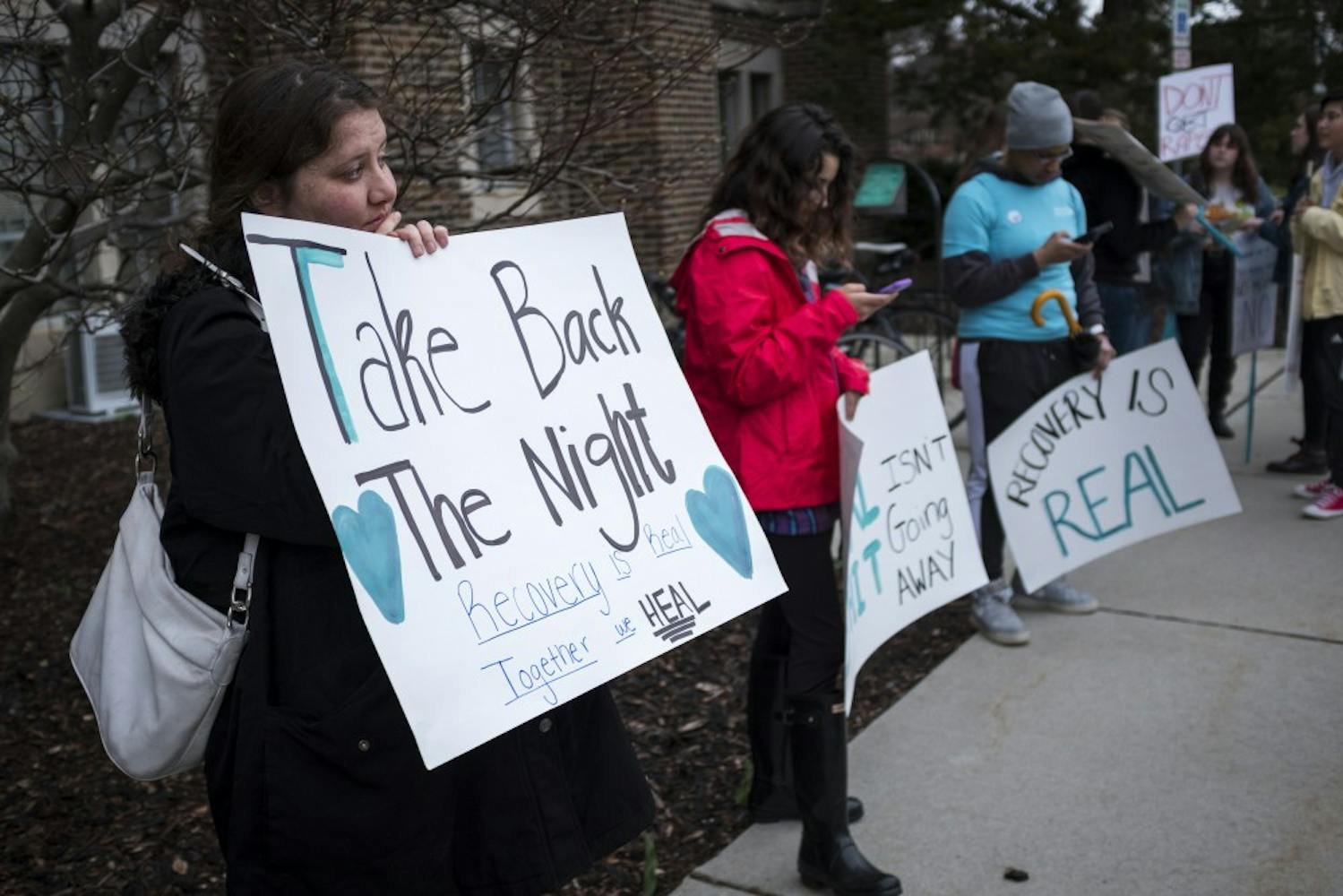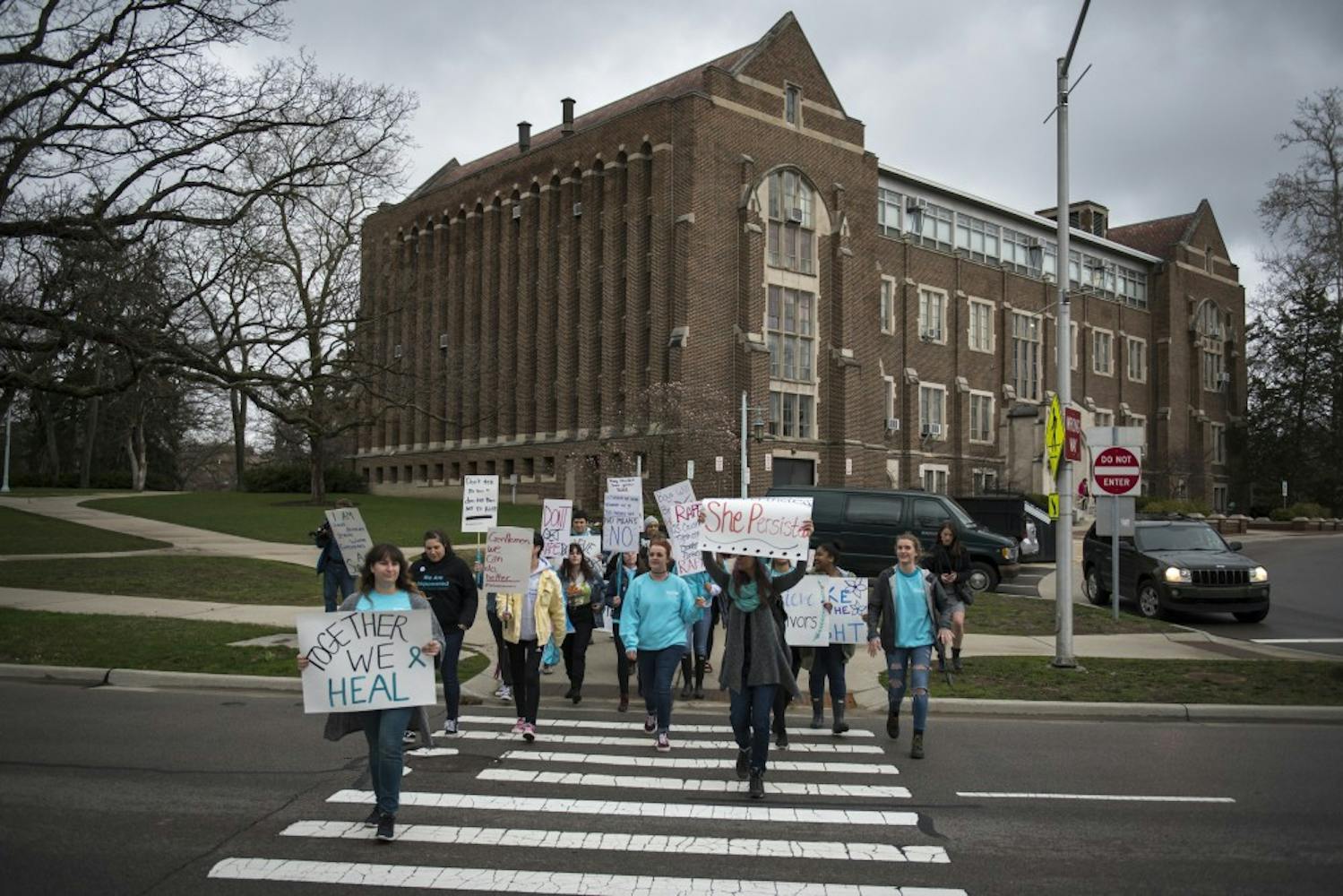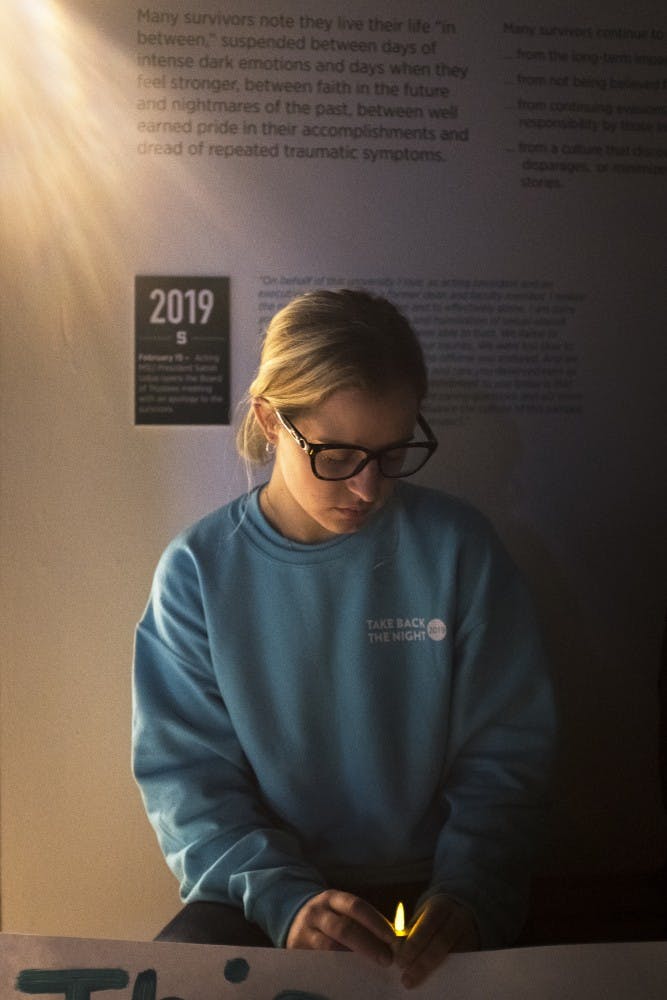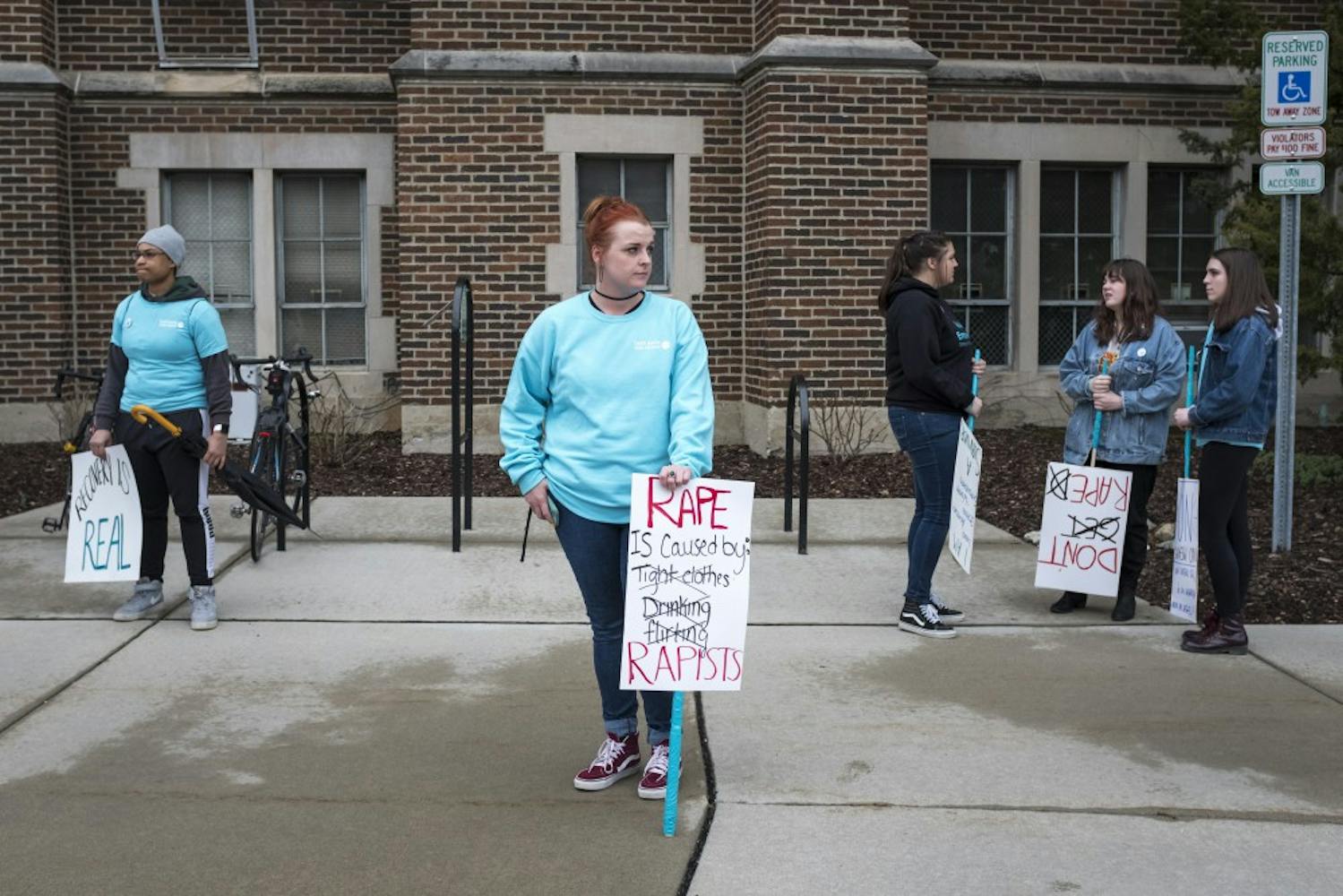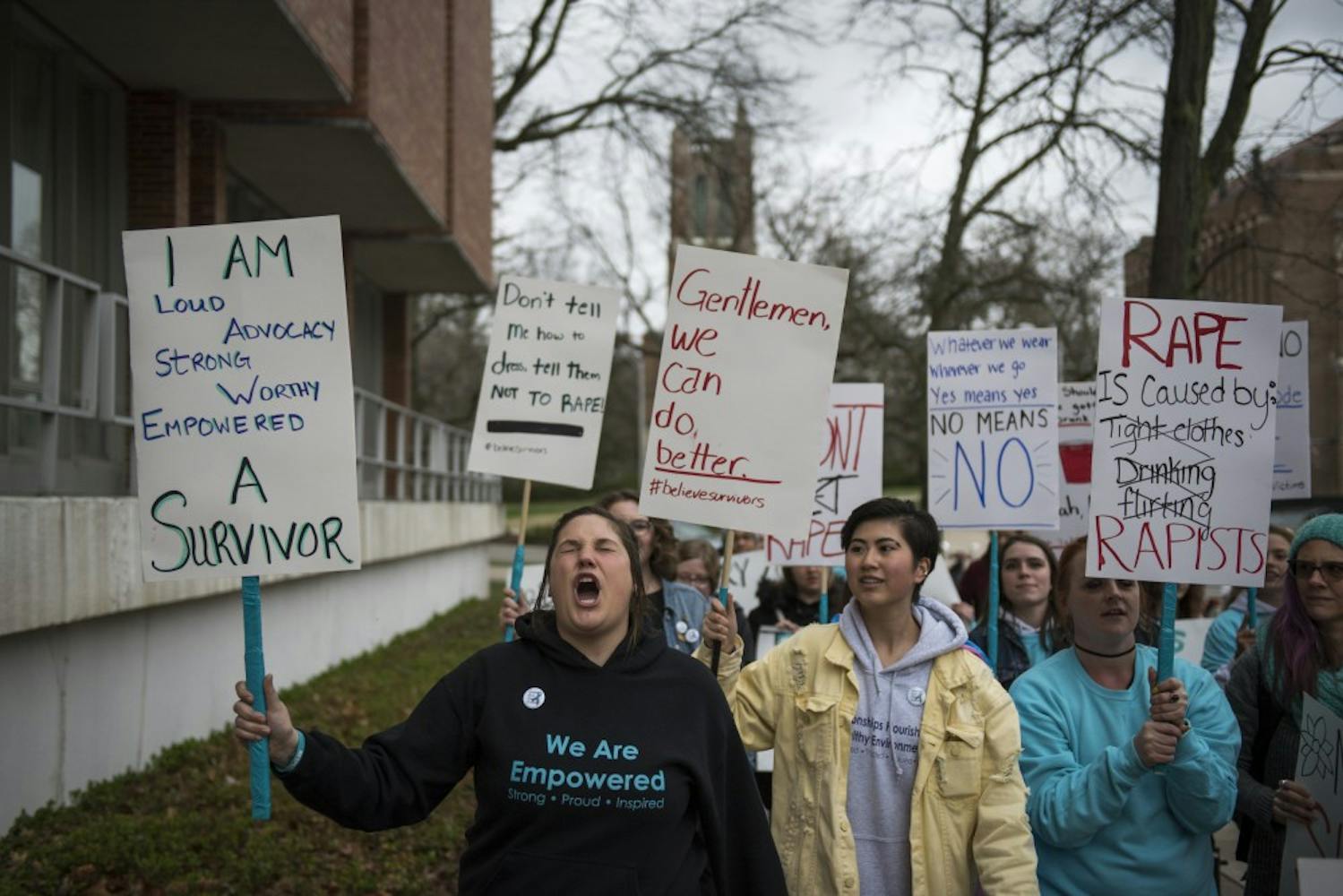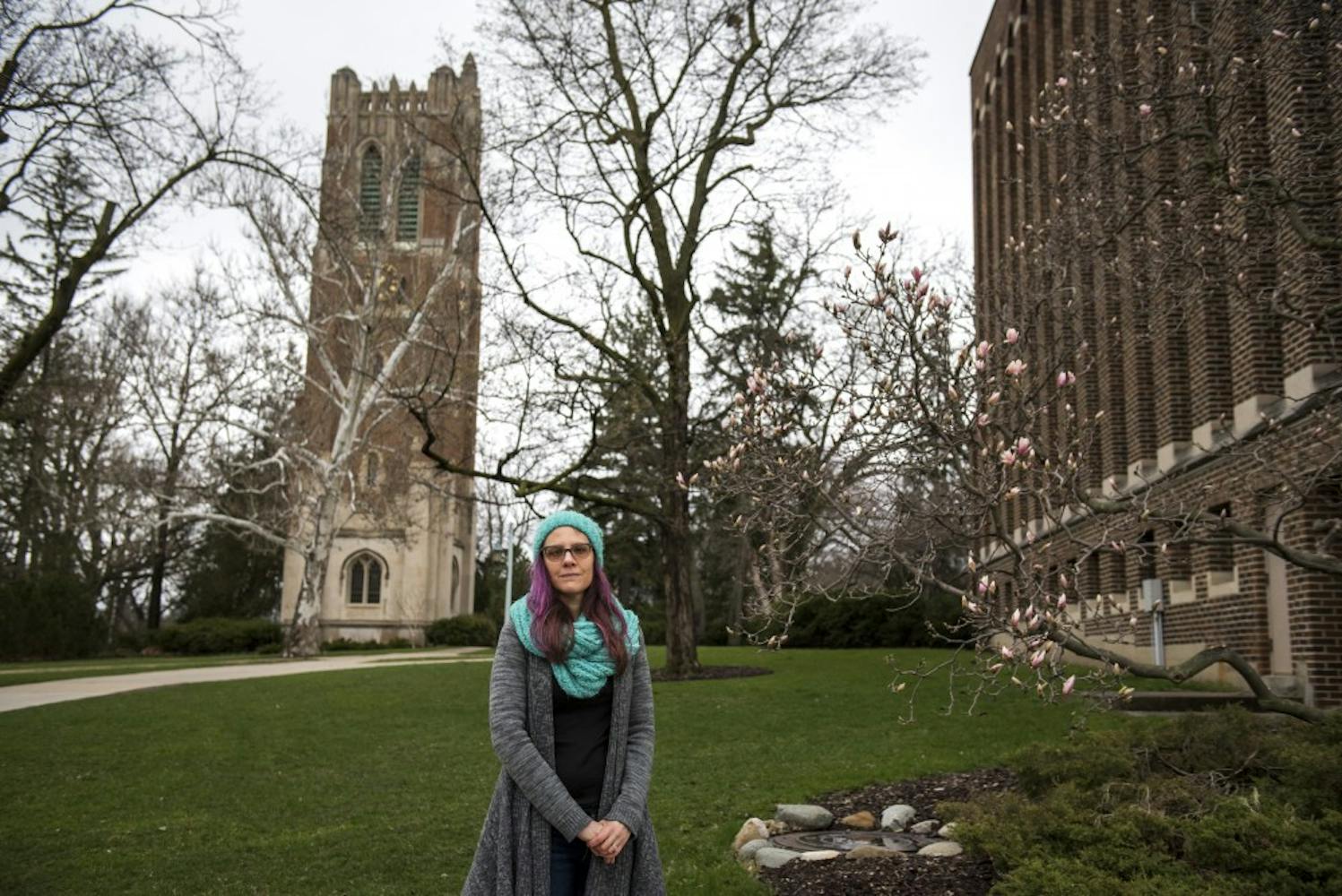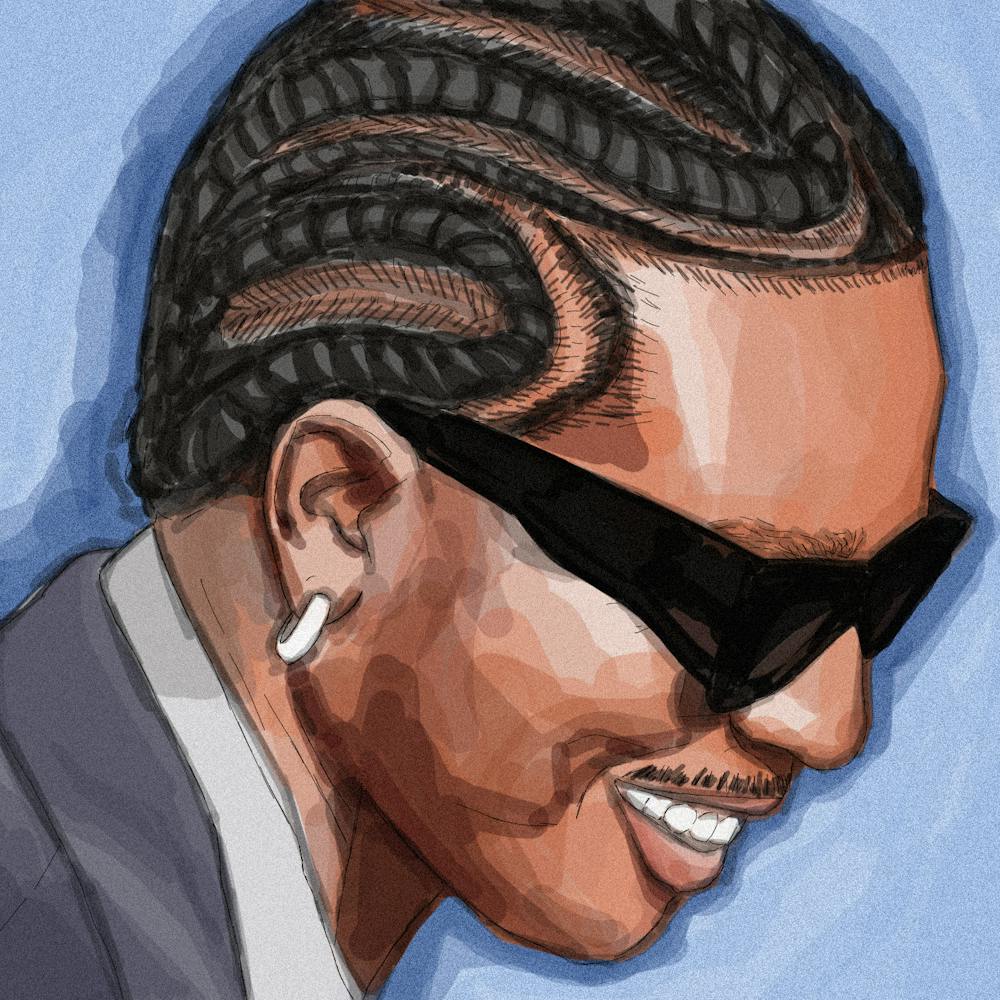Take Back the Night, an annual day of events devoted to raise awareness of sexual violence and offer recovery resources, took place Thursday at Michigan State.
Take Back the Night aims to shed light on the prevalence of domestic and sexual violence, according to the event’s website. It has been held on campus annually for more than 20 years. This year, several events were held at the MSU Museum.
The museum is the site of the newly-opened Finding Our Voices: Sister Survivors Speak exhibit, which was created by curators and numerous survivors of Larry Nassar's abuse. Early in the day, visitors could take guided tours through the downstairs exhibit. Upstairs, therapy dogs and a resource fair were set up.
Know More MSU, MSU Police, Women's Council, Women’s Health Alliance, Project LETS and more organizations were present.
Kayla Fagan, president of Women’s Health Alliance, has been part a team working to bring free pads and tampons to campus facilities. She helps fundraise and volunteer for Mission Menstruation as part of that. Women’s Health Alliance was contacted to be at Take Back the Night, she said, because of the organization’s work toward gender equality.
“We’re involved with the Coalition of Gender Empowerment Groups, and that’s run by the Women’s Council,” Fagan said. “Anyone who’s promoting gender equality, they reached out to.”
The MSU Museum held more events throughout the day as well — like a march across campus, a candlelight vigil and a keynote speech from Emily Dievendorf, an adjunct professor at Olivet College.
Madeline Van Eck, a student on Take Back the Night’s planning committee, said her team shared the responsibilities of organizing the resource fair, the march and more.
“We had a couple of our members write a bunch of emails explaining what Take Back the Night was about and then inviting them to come and participate and share the resources their organizations provide,” Van Eck said.
One thing organized by Take Back the Night is the Clothesline Project, which uses t-shirts to show survivor testimonies. Thursday’s weather didn’t permit organizers to hang the shirts up on clotheslines outside, so they were on display inside the MSU Museum.
Because Take Back the Night has been happening at MSU for 25 years, some of the shirts date back to 1991.
“Occasionally, people will bring their own shirts, because they know that the Clothesline Project is happening, and add their shirts to the collection,” Van Eck said. “Some people come and they see a shirt or they see a story that resonates with them or, depending on the color of the shirt, and if there’s open space, they’ll add their story to the shirts."
Parts of the evening portion of Take Back The Night was also held at the MSU Museum. It began with survivors, students, alumni and more sharing their stories in a "Speak Out," participating in a march and concluded with a candlelight vigil.
More than thirty individuals participated in the march, many wearing teal in support of sexual assault survivors and carrying signs depicting different messages. Some of the signs addressed rape culture, victim blaming and themes of strength and healing.
News outreach coordinator for Take Back the Night Beth Alger — a third year graduate student — explained why events like this are important.
“The march is so we are visible to the campus, because we can have this really impactful event here in the museum, but if it’s just in one location, then the impact doesn’t really spread to the entire campus," Alger said. "We want to march around campus with our signs just to show it’s a campus-wide thing, and not to stay isolated in our one little event space.”
The march began at the MSU Museum, continued along Red Cedar River and took auditorium lane back to the museum. Participants shouted chants such as, “two, four, six, eight, stop the violence, stop the rape."
MSU Alumna Kyra Clay was one of those people, and remembers volunteering for the event when she attended MSU back in 2011. When she joined after her assault, she was afraid to participate.
Support student media!
Please consider donating to The State News and help fund the future of journalism.
"It’s time for me to try to (have) the courage to be a part of the rest of the warriors that are out here," Clay said.
Alger said many at MSU are attempting to change the way sexual assault is addressed on campus.
“There is still a lot about MSU that needs to change, and how they’re dealing with sexual assault survivors — especially how they deal with sexual assault or sexual harassment reports," Alger said.
Women’s Council President Jillian Kettlewell — a student organizer of the event — agreed that events like these are helpful, but said the institution as a whole needs to take action.
“I would like to see institutionalized progress in terms of the administration actually taking these things seriously ... and making the effort to actually listen to students, and realize that we're the ones living through this on campus — not them,” Kettlewell explained.
Kettlewell also explained that whenever she thinks progress is happening, something comes out that almost makes it feel as if progress is not happening.
“Realizing today that this event has been taking place since the 70s, we've been having this conversation,” Kettlewell said. “It's just that huge hope that things actually do go forward.”
Discussion
Share and discuss “All-day event on campus 'Take Back the Night' addresses sexual violence” on social media.
